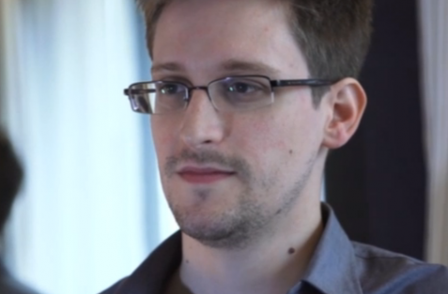
Investigative journalists around the world have voiced concerns about “woefully inadequate” safeguards over state surveillance by the UK, US and other “Five Eyes” countries.
The concerns are raised in a study by journalism academic Paul Lashmar, No More Sources, which assesses the impact of the 2013 Edward Snowden revelations on journalists and their sources.
Snowden’s leaked National Security Agency documents revealed vast bulk collection of electronic communications by the Five Eyes countries of the USA, UK, Australia, New Zealand and Canada.
According to former NSA senior manager William Binney up to 3bn people are affected by NSA surveillance of internet and telecoms systems.
British investigative journalist Duncan Campbell said he is not against surveillance being used against terrorists: “They are doing effective anti-terrorism. It does work. It’s what people want.
“It’s what journalists absolutely do not seek to expose and that is shown in the Snowden case which is dripping with this stuff that I doubt will ever see the light of day because it is about anti-terrorism.”
But he also warned: “There are not remotely enough safeguards in place. Most national parliaments have no idea what is going on.
“There are two sets of poisons running here: the British–American alliance and the secret influence that has and then a global ‘little brother’ network [the 35 other national partners].
“These agencies have their own agendas and the release of many constraints after 9/11 just means they flourished like a cancer and the growth means they are not fit for purpose.”
The UK Parliament is currently discussing the Draft Investigatory Powers Bill which seeks to put much of the state surveillance revealed by Snowden on a statutory footing.
Campbell said: “What is being said to the public and Parliament in Britain right now is ‘Trust us’—trust the judges, trust the system—and many people want to. But that we have seen from the record is that over 30–40 years, they cannot be trusted.”
Former editor of the UK Bureau of Investigative Journalism Christopher Hird is also quoted by Lashmar. He issued a warning about the precautions journalists now need to take to protect their sources.
He said: “You have to work on the assumption that if the authorities decide to take an interest in you they will be able to discover nearly anything you are up to, who you are meeting, what research you are doing, who you are talking to and what your networks are.
“If they so choose it is relatively easy for them to do, and confirms the suspicion one has had for some time, particularly in the digital world, one has to understand it is easier for them to do this than in the past.”
Director of the UK Centre for Investigative Journalism Gavin MacFadyen is also concerned about the ability of journalists to protect sources.
He said surveillance is “an incredible threat to us, our sources and democratic process. Knowledge is power and we give them all this knowledge without constraint with no fear of perjury.”
He said: “There has never been anything like this, except in the worst totalitarian states, compared to the threat to free inquiry now.”
New Zealand investigative journalist Nick Hagar explained the lengths he now goes to to protect sensitive sources: “Because I have worked on sensitive subjects, I would just never leave call data between me and a sensitive source. I’d never email them either…
“Snowden’s revelations are a wake-up call for everyone who might one day be targeted. I especially think of the state capacity for hacking which goes beyond what I imagined.”
Lashmar concludes: “Documents released from the Snowden cache indicate that intelligence agencies operate on a hitherto unexpected, global capability of penetration and coverage, with both defensive and aggressive remit.
“It is also clear that the formal accountability systems for intelligence services are woefully inadequate in all the Five Eyes countries.
“At a time when the news media, more than ever, needs to exert scrutiny over the burgeoning intelligence community with that community’s expanded capacity and licence to spy and intrude, it is unfortunate that this coincides with a new era where the agencies’ fast-developing technological capability enables them to deter public-interest inquiry.”
Email pged@pressgazette.co.uk to point out mistakes, provide story tips or send in a letter for publication on our "Letters Page" blog
